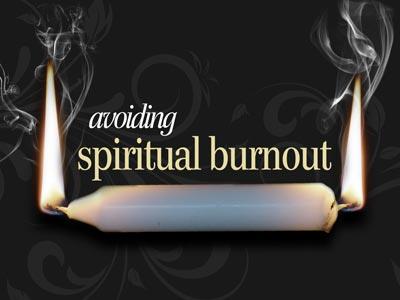-
Fixing The Fatal Feelings Of February
Contributed by Jerry Shirley on Nov 28, 2017 (message contributor)
Summary: 4 Consequences, 4 Causes, and 4 Cures 4 Depression. David was a man after God’s own heart and he struggled with it, as do many of God’s children. Link included to formatted text, audio, and PowerPoint Template.
Fixing the Fatal Feelings of February
The Consequences, Causes and Cure of Depression
Psalm 77
http://gbcdecatur.org/sermons/FatalFebruary.com
Depression is real…and affects many people year round. But we are starting the month known for being the most depressing of all. Aside from the cold, the clouds, the darkness in late afternoon, there is the credit card bills from Christmas, the letdown from the holidays, and finally, the broken resolutions which by now have fallen thru the cracks.
February is strange enough as it is. From the spelling of the word, to the ‘exact 4 week’ length, it’s a monotonous time of just going thru the motions…and then there’s leap years where we have to extend our misery another extra day! The calendar adds insult to injury each and every February. It’s exactly like March, because of the 4 week thing…Feb. 1 is a Thursday and so is March 1. Do we even need this month?!
Even our study is grouped in ‘fours’. Four consequences, four causes, and four cures. Let’s make it a positive thing and let these ‘fours’ fix our fatal feelings for February and ‘frewout’ the year!
Most of us know what depression is, and few can claim that they have never experienced depression of some kind. Certainly the psalmist was depressed when he wrote Psalm 77; and since he knew what depression was, and we know it also, we can base this study upon two books, the Book of God and the Book of Human Experience. What gloomy and depressing reading this psalm makes! Have you ever felt like verses 2, 3 and 4? And have you ever said verses 7, 8 and 9?
Four Consequences of Depression
(1) It overwhelms our spirit.
The psalmist tells us this in verse 3. One dictionary definition of depression is "a lowering of the spirit". How often some of us have experienced this! We find ourselves down in the depths, our spirit has been defeated, dejected and overwhelmed, and often we don’t seem to know why.
(2) It awakens our memory.
In verse 6 the psalmist tells us that in his time of depression he remembered the times when he had been able to sing, even in the night, but not now! When he compared that time with this time he longed that this time could be like that time, and the very memory of it made him more miserable! And not just a time, but likely another place or other circumstances. He didn’t have Paul’s words about being content in whatsoever state you are in [even if it is Illinois!]
(3) It robs us of sleep.
In verse 4, he tells us that when he went to bed his eyelids refused to close. Depression does that, and so do its relatives--worry and anxiety. Depression is usually worse at night than in the day.
(4) It seals our lips.
In verse 4, the psalmist says, "I am so troubled that I cannot speak!" Have you ever been in that condition? There are two causes of dumbness: preoccupation and depression. We can easily rouse ourselves out of our preoccupation, but not out of our depression.
Four Causes of Depression
Before we look at the causes of depression and think of the cure, we must remember that there are many reasons why people, including Christians, may get depressed--The cause may be physical, e.g. a chemical imbalance in the body. Good health is a great enemy of depression, and bad health is a good friend of depression. Lack of exercise can be a major contributor.
Adverse circumstances and bad news can bring depression; the job we are engaged in may make us specially prone to depression; temperament has something to do with it, and even the weather can cause depression of the body and then of the mind! Also, a lack of necessary vitamins and proper nourishment can cause depression. Notice at the end of verse 9, "Selah", which means, "Pause and think about it!" Well, please do so before you go any further.
Here’s the 4 causes from Psalm 77:
(1) A morbid, pessimistic outlook.
In verse 2, the psalmist "refused to be comforted". Some people are full of pessimism, always thinking and speaking in a "minor key", "enjoying bad health"! As Christians, we should cultivate a holy optimism and deliberately refuse to dwell upon the dark side of things. What right have we to be pessimists? A complaining spirit goes right along with this…In verse 3, the psalmist says, "I complained, and my spirit was overwhelmed". The person who is always complaining is especially prone to depression. Avoid being one of those people!
(2) An offending conscience.
In verse 3, he tells us that in his depression he "suddenly remembered God and was troubled". Evidently he did not have a conscience "void of offence", Acts 24:16. There was something between himself and God. Is there anything between us and the Lord? Are we disobeying Him in any way, Eph. 4:30?

 Sermon Central
Sermon Central



